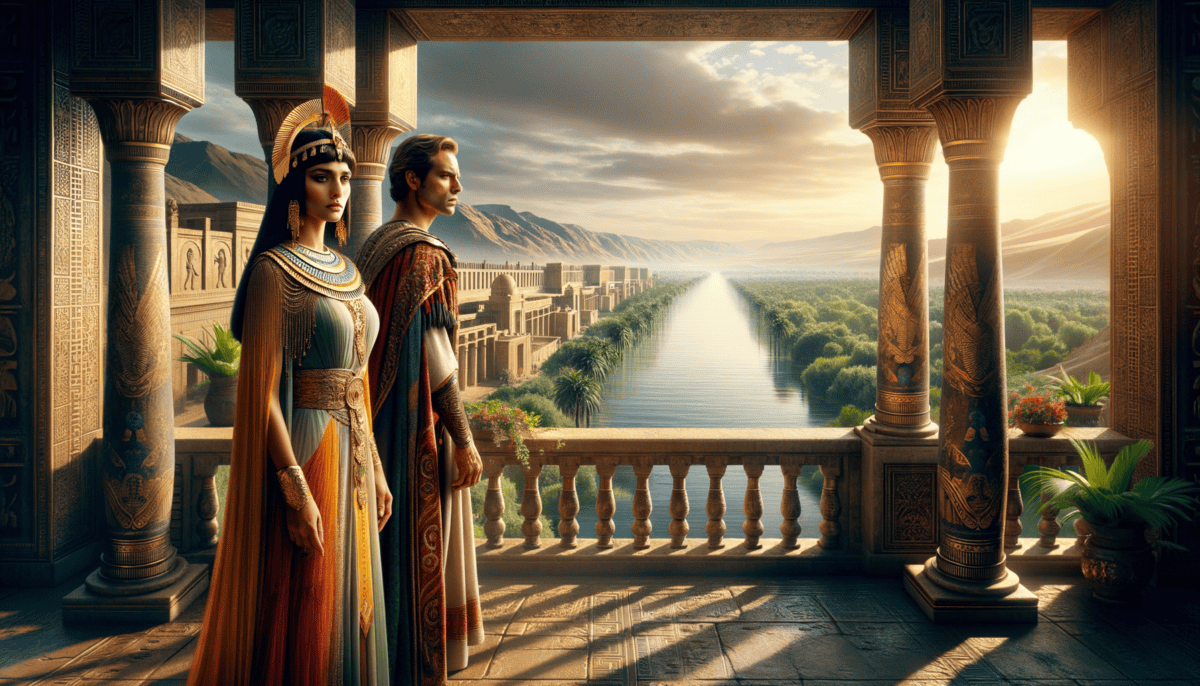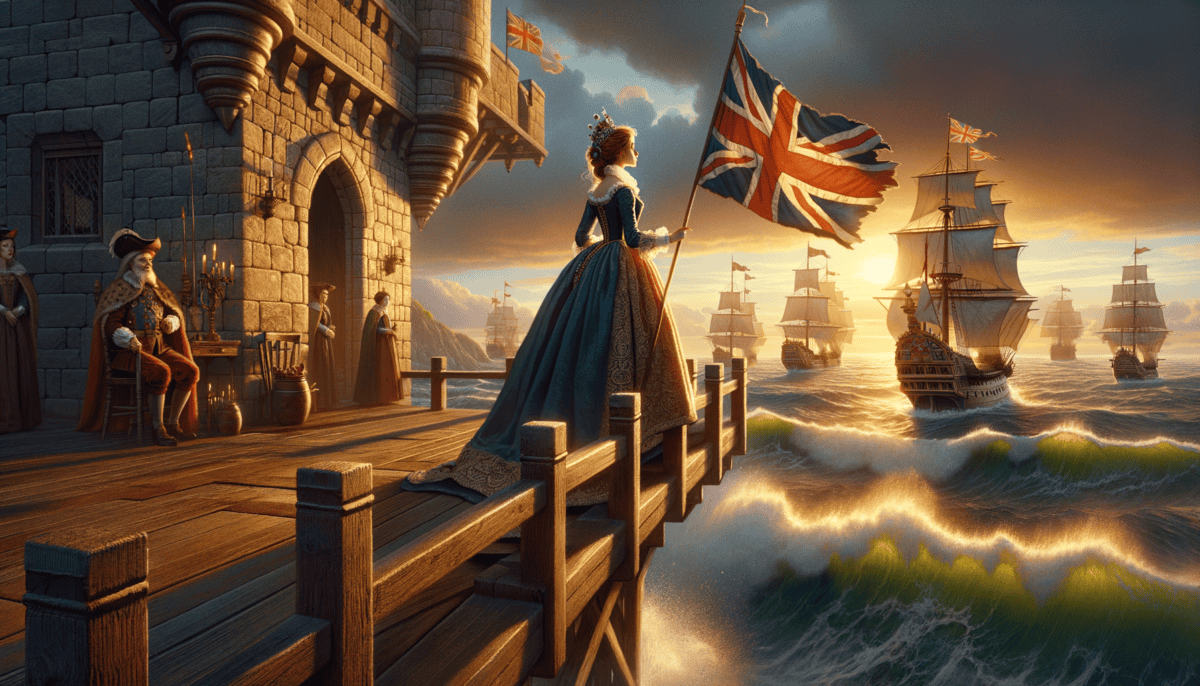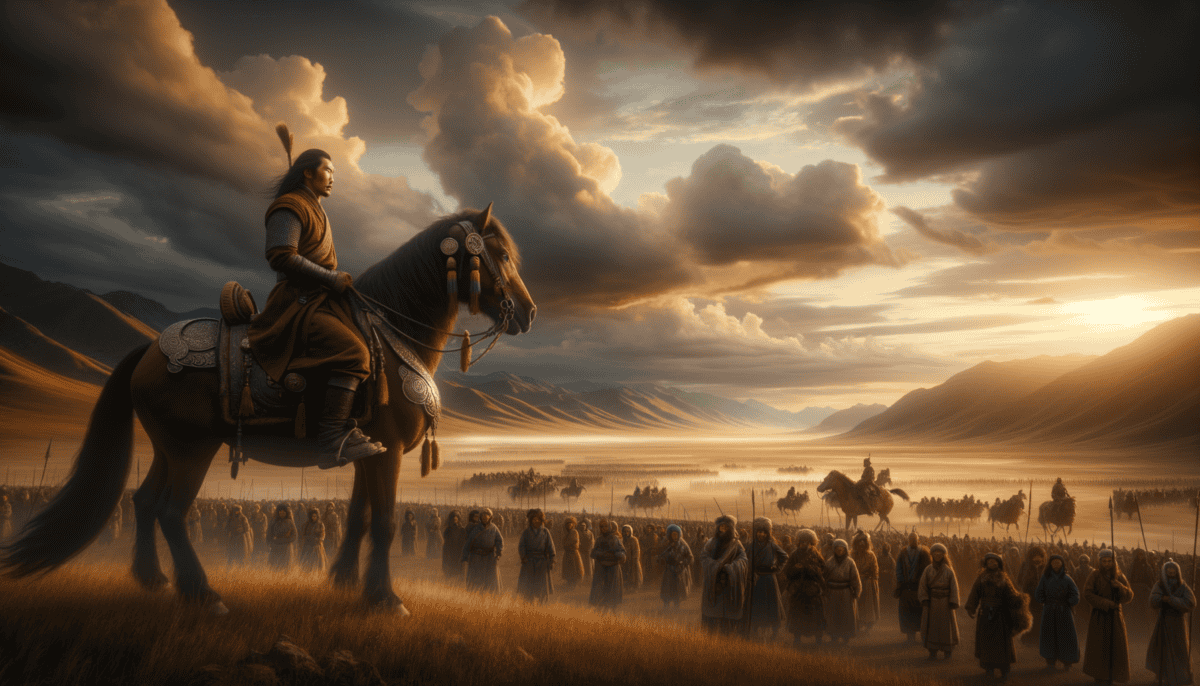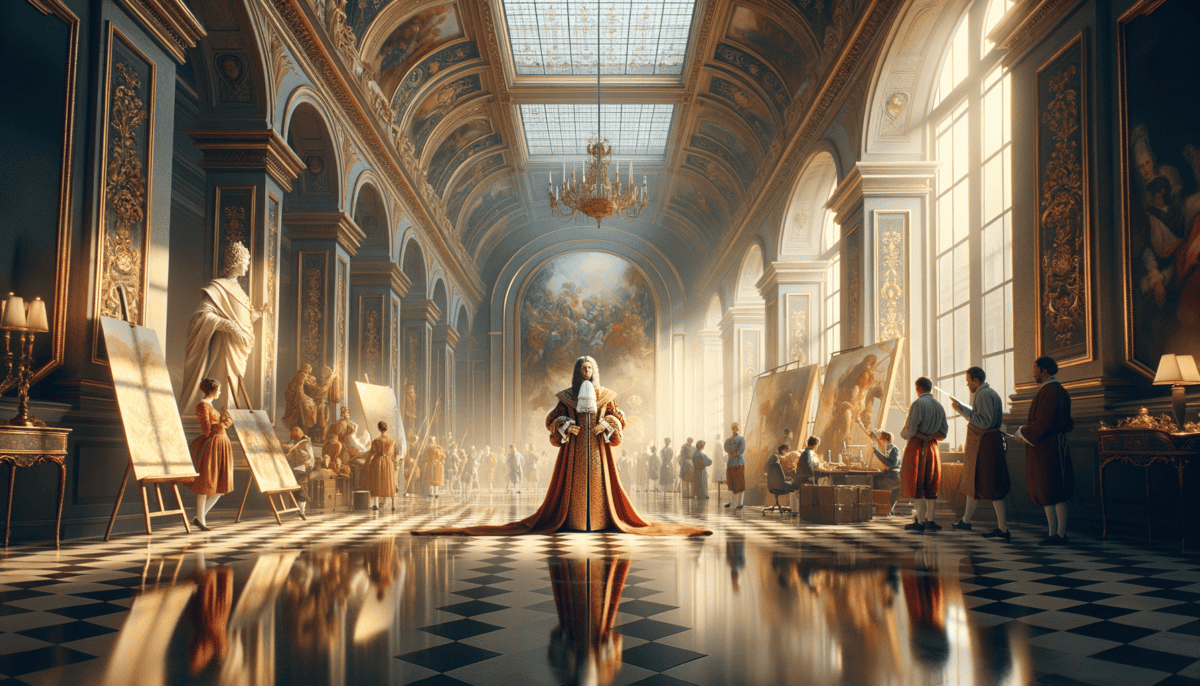A Boy Who Would Be King
The sun rose over the ancient city of Pella, casting golden light across marble columns. A young boy with bright eyes and wild blonde hair raced through the palace courtyard. This was Alexander, prince of Macedonia, and he had a very important lesson today.
"Prince Alexander!" called his teacher, Aristotle. "Are you ready to begin?"
Alexander skidded to a halt, his sandals scraping against the stone floor. He loved learning from Aristotle, especially stories about great heroes.
"Tell me about Achilles again," Alexander begged, settling onto a bench in the garden. "He's my favorite hero."
Aristotle smiled and sat beside his eager student. "Ah, but today we'll learn something even more important – how to be a good leader."
Young Alexander's face lit up. Being a good leader meant everything to him. His father, King Philip, ruled all of Macedonia. One day, Alexander would need to do the same.
The First Test
When Alexander was just 16, something amazing happened. His father had to leave the kingdom for a while and chose Alexander to be in charge!
"But father," Alexander said nervously, "what if something goes wrong?"
King Philip placed a strong hand on his son's shoulder. "You have learned from the best teachers. I trust you, my son."
While his father was away, Alexander faced his first big challenge. A group of people called the Thracians had rebelled!
Instead of being scared, Alexander remembered his lessons. He gathered the army and made a clever plan. He led his soldiers bravely and won his very first battle!
The Special Horse
One day, some traders brought a beautiful black horse to the palace. The horse was named Bucephalus, but it was wild and scary. Nobody could ride it!
"This horse is dangerous," the traders told King Philip. "It's impossible to tame."
But Alexander watched the horse carefully. He noticed something everyone else had missed – the horse was afraid of its own shadow!
King Philip was so proud he cried, "O my son, look thee out a kingdom equal to and worthy of thyself, for Macedonia is too little for thee!"
Growing Into a Leader
As Alexander grew older, he showed more and more signs of being a great leader:
- He was brave in battle
- He loved to learn new things
- He treated everyone with respect
- He worked hard to solve problems
- He never gave up when things got tough
Every day, Alexander trained with the army. He read books about famous battles. He learned about different languages and cultures. He was getting ready for something big – though he didn't know yet just how big it would be!
One evening, as Alexander watched the sunset from the palace walls, Aristotle joined him.
"What are you thinking about?" the wise teacher asked.
Alexander's eyes sparkled with dreams of the future. "I want to do something great," he said. "Something no one has ever done before."
Aristotle nodded knowingly. "Remember, young Alexander, true greatness comes not just from winning battles, but from making the world better."
The young prince stood tall, his shadow stretching long across the courtyard. He wasn't just a boy anymore – he was becoming the leader he was meant to be. But his greatest adventures were still to come, and the world would never be the same once he began his journey.
The Desert Queen
The warm Egyptian sun peeked through silk curtains, casting dancing shadows on palace walls. A young girl sat at her window, watching ships sail down the great River Nile. This was Cleopatra, and she was different from other princesses.
“Princess,” her teacher called, “tell us again about the stars.”
Cleopatra smiled. She loved learning about everything – stars, plants, different languages, and how to be a good leader. While other kids played games, she spent hours reading scrolls in the great library of Alexandria.
Family Troubles
But life wasn’t always easy in the palace. Cleopatra’s family fought a lot about who should be in charge. When she was just 18, her father chose her to help him rule Egypt.
“Father,” she asked one day, “why did you pick me to help you?”
“Because, my dear,” he replied, “you have the mind of a leader and the heart of Egypt.”
Sadly, when her father died, Cleopatra’s little brother tried to take all the power for himself. He made her leave the palace!
A Clever Plan
But Cleopatra was smart. She knew she needed help to become queen again. When Julius Caesar, the leader of Rome, came to Egypt, she had an idea.
“My lord Caesar,” she said bravely, “Egypt needs a strong leader who understands its people. I can be that leader.”
Caesar was amazed by how smart and brave Cleopatra was. He helped her become Queen of Egypt again.
A Queen’s Wisdom
As queen, Cleopatra did many wonderful things:
- She made sure people had enough food
- She built new temples and fixed old ones
- She learned about medicine to help sick people
- She protected Egypt from enemies
- She made Egypt rich and strong
“Your Majesty,” a servant asked one day, “why do you work so hard?”
Cleopatra looked out at her beloved city of Alexandria. “Because Egypt is not just a place,” she said. “It’s my home, and all these people are my family.”
The Queen’s Challenge
Even though Cleopatra was a great queen, some people didn’t like that a woman was in charge. But she never let that stop her. She wore special clothes to show she was both king and queen. When she spoke to her people, she used her voice like music to make them listen.
“Look how the queen glows like the sun,” people would say. “She is as wise as Isis herself!”
At night, Cleopatra would often climb to the top of the lighthouse of Alexandria, the tallest building in the world. As she watched the stars twinkle over her kingdom, she thought about all the things she still wanted to do.
“I will make Egypt greater than it has ever been,” she whispered to the night sky. And she meant it. Cleopatra wasn’t just a queen – she was becoming one of the most powerful leaders the world had ever known.
The stars winked back at her, as if they knew this was just the beginning of her amazing story. The Queen of Egypt had many more adventures ahead, and her name would be remembered forever.
The Virgin Queen’s Triumph
The cold stones of the Tower of London echoed with footsteps. A young princess with red hair sat alone, wondering if she would ever see the sun again. This was Elizabeth, and she would soon become England’s greatest queen.
The guards whispered as they passed her cell. “That’s Henry VIII’s daughter,” they said. “She might be queen one day.”
A Princess Becomes Queen
When Elizabeth’s sister Mary died, everything changed. The bells rang all over London, and people shouted with joy. Elizabeth was going to be queen!
“The Tower is yours now, Your Majesty,” said a guard, bowing low.
Elizabeth smiled. “Once my prison, now my palace. How strange life can be!”
The Queen’s Big Decision
Everyone wanted Elizabeth to get married. “A queen needs a king!” they said. But Elizabeth had other ideas.
“I am married to England,” she told her advisors. “And all English people are my children.”
Fighting the Spanish Armada
The biggest test of Elizabeth’s rule came when Spain sent a huge fleet of ships to attack England. People were scared – the Spanish ships were the biggest anyone had ever seen!
Elizabeth rode out to meet her soldiers on a white horse. She wore shiny armor and spoke to them bravely:
“I know I have the body of a weak and feeble woman, but I have the heart and stomach of a king!”
The English ships were smaller but faster. They used clever tricks to beat the big Spanish ships:
- They sent burning ships into the Spanish fleet
- They used the wind to their advantage
- They attacked at night when the Spanish couldn’t see well
- They used their smaller ships to dodge better
- They worked together as a team
A Golden Age
Under Elizabeth’s rule, England grew strong and rich. She loved plays and music, and a man named William Shakespeare wrote many famous stories during her time.
“Your Majesty,” asked a young girl one day, “why do people call this the Golden Age?”
Elizabeth smiled kindly. “Because, my dear, we are making England shine like gold. Our ships sail to new lands, our poets write beautiful words, and our people grow stronger every day.”
The Queen’s Legacy
As Elizabeth grew older, her red hair turned white, but her mind stayed sharp as ever. She wore beautiful dresses and wigs to show everyone she was still strong.
“Look!” people would say. “The queen looks as young as ever!”
Elizabeth would often stand at her palace window, watching the ships sail up the River Thames. She thought about how far England had come since those dark days in the Tower.
“We have done good things together, my England and I,” she said softly to herself. The setting sun painted the sky gold, just like the age she had created.
On her finger, she wore a ring with words that meant “No End.” Just like that ring, Elizabeth’s story would go on forever, inspiring people to be brave and clever, just like the Virgin Queen who ruled alone.
The Steppes Warrior
The wind howled across the grasslands, carrying dust and secrets. A small boy huddled close to his mother, watching their last sheep graze. This was Temujin, who would one day become Genghis Khan, the greatest ruler the steppes had ever known.
Growing Up Strong
“Mother,” Temujin asked, “will we ever be rich again?”
His mother Hoelun smiled wisely. “Wealth isn’t just about gold, my son. True wealth comes from having loyal friends and being clever.”
Life was hard for young Temujin. Other kids made fun of him because his family was poor. But instead of getting sad, he got smart. He learned to ride horses better than anyone. He practiced shooting arrows until his fingers hurt.
Making Friends and Allies
Temujin had a special way of making friends. When he met someone brave or smart, he would say, “Be my brother!” He didn’t care if they were rich or poor.
One day, his best friend Jamukha gave him a special gift – a tiny black kitten.
“Like this kitten,” Jamukha said, “you may look small, but you have sharp claws!”
Uniting the Tribes
As Temujin grew up, he saw how the different tribes of Mongolia fought each other all the time. Nobody was happy. He had a big dream – to bring them all together!
“Why fight each other when we could be strong together?” he would ask.
Here’s how Temujin brought peace to the steppes:
- He shared food with hungry families
- He protected weak tribes from bullies
- He made fair rules for everyone
- He rewarded people who worked hard
- He forgave enemies who became friends
Building an Empire
People started calling Temujin “Genghis Khan,” which meant “Universal Ruler.” He built the biggest empire anyone had ever seen!
Genghis Khan did many smart things to help his people:
“Write down all our stories!” he told the wise men. He wanted everyone to learn to read and write.
“Build safe roads!” he ordered. Soon, traders could travel safely across his whole empire.
“Learn from everyone!” he said. He invited people from many lands to teach his people new things.
A Different Kind of King
Even when he became the most powerful man in the world, Genghis Khan never forgot his humble beginnings. He still lived in a ger (a round tent) like everyone else.
A visitor once asked, “Great Khan, why don’t you live in a golden palace?”
Genghis Khan laughed. “The whole world is my palace! And my people are my gold!”
Lasting Changes
Thanks to Genghis Khan, the world changed in big ways. He created the first mail service, where riders could deliver messages super fast. He made paper money popular. Most importantly, he showed that someone from nowhere could become something great.
At night, sitting by the fire, Genghis Khan would look at the stars and think about the little boy who once hunted rats to survive. Now that boy’s name would never be forgotten.
The old folks still say that on quiet nights, you can hear hoofbeats on the steppes – the ghost of Genghis Khan still riding, watching over his people.
The Sun King’s Brilliance
The morning sun peeked through the golden curtains of the Palace of Versailles. A young boy stood by the window, his small hand pressed against the glass. This was Louis, soon to be known as the Sun King of France.
A Boy King’s Dream
“Mama,” little Louis asked his mother, “why do people fight so much?”
Queen Anne sighed. “Because everyone wants to be in charge, my dear. That’s why you must learn to be wise and strong.”
Louis wasn’t like other kids. While they played with toys, he learned about running a country. He wanted France to shine like the sun! ☀️
Dancing King
Louis loved to dance! He practiced ballet every day. People laughed at first – a king who dances? But Louis knew something they didn’t.
“When I dance, I learn grace. When I have grace, people listen to me.”
Soon, everyone at court wanted to learn dancing too! Louis turned his love of art into a way to make France beautiful.
Building a Palace of Dreams
One day, Louis looked at his hunting lodge at Versailles and had a big idea.
“Here,” he declared, “I will build the most beautiful palace in the world!”
And oh, what a palace it was! Here’s what made Versailles special:
- Gardens that seemed to go on forever
- Fountains that danced with water
- Rooms covered in mirrors and gold
- A special hall just for parties
- The biggest collection of orange trees in Europe
Making France Shine
Louis didn’t just make pretty buildings. He made France better in many ways:
“Let’s make beautiful things!” he said. Soon, French artists and craftspeople were creating the loveliest furniture, clothes, and art in Europe.
“Build better roads!” he ordered. New streets connected all parts of France.
“Everyone should learn!” he declared. New schools and libraries opened across the country.
The King’s Daily Life
Life at Versailles was like a big show, and Louis was the star. Every morning, nobles would watch him get dressed and eat breakfast!
“Why do they watch you eat, Your Majesty?” a child once asked.
Louis smiled. “Because everything a king does is important. Even eating toast!”
Making Art Popular
Louis loved all kinds of art. He started the first Royal Academy of Dance. He built theaters and supported musicians. Because of him, French art became famous all over the world.
A Lasting Light
As Louis grew older, his palace at Versailles became a model for palaces everywhere. Kings and queens from other countries tried to copy his style.
But more than the fancy buildings and beautiful art, Louis left something else behind – he showed how art and culture could make a country strong.
Today, millions of people visit Versailles each year. When the sun hits the golden gates just right, some say they can still feel the presence of the Sun King, dancing through his halls, making France shine bright. ✨
The Emperor’s New Dawn
Cherry blossoms danced in the morning breeze as young Prince Mutsuhito gazed out from his palace window in Kyoto. It was 1867, and Japan was about to change forever.
A Brave New World
“Look, young master,” his teacher pointed to a strange ship in the harbor. “That’s what they call a steamship. The world outside Japan has many wonders.”
The young emperor’s eyes grew wide. For hundreds of years, Japan had kept itself closed off from other countries. But now, everything was about to change.
The Big Move
Emperor Meiji made a bold choice. “We will move the palace to Tokyo,” he announced. “It’s time for Japan to open its doors to the world!”
“To be strong, we must learn from others while keeping our own special ways.”
Trains, Schools, and New Ideas
Here are the amazing changes Emperor Meiji brought to Japan:
- Built Japan’s first railroad
- Started schools for all children
- Brought electric lights to cities
- Created a modern army
- Allowed people to choose their jobs
Keeping Old and New Together
“But Emperor,” some worried people said, “what about our old ways?”
Meiji smiled wisely. “We will keep the good from our past and add new good things too!”
He showed this by keeping beautiful Japanese gardens next to modern factories. Children learned both old Japanese poems and new science lessons.
The Emperor’s Day
Emperor Meiji worked hard every day to make Japan better. He would wake up early to read reports from all over the world. He rode in both horse carriages and new automobiles.
“Why do you work so hard?” asked a young visitor.
“Because,” he answered, “a good leader must help their people grow stronger and happier.”
Japan Grows Strong
Soon, Japan became known around the world. Its ships sailed to far-away places. Its factories made things people everywhere wanted to buy. Japanese art and ideas spread across the seas.
A Bridge Between Times
As Emperor Meiji grew older, he could see how his dreams had come true. Japan had become modern while keeping its special spirit. Like a bridge connecting two shores, he had helped his country step boldly into the future while honoring its past.
The Legacy Lives On
Today, Japan still shows how old and new can work together beautifully. Busy modern streets have ancient temples nearby. Fast bullet trains zoom past peaceful rice fields. This is Emperor Meiji’s greatest gift – showing how a country can change and grow while keeping what makes it special.
And so ends our journey through time, meeting great leaders who changed the world. From Alexander’s conquests to Meiji’s modern dreams, each one showed that true leadership means helping others grow and shine. Their stories remind us that anyone can make history better – one brave choice at a time. ⭐






